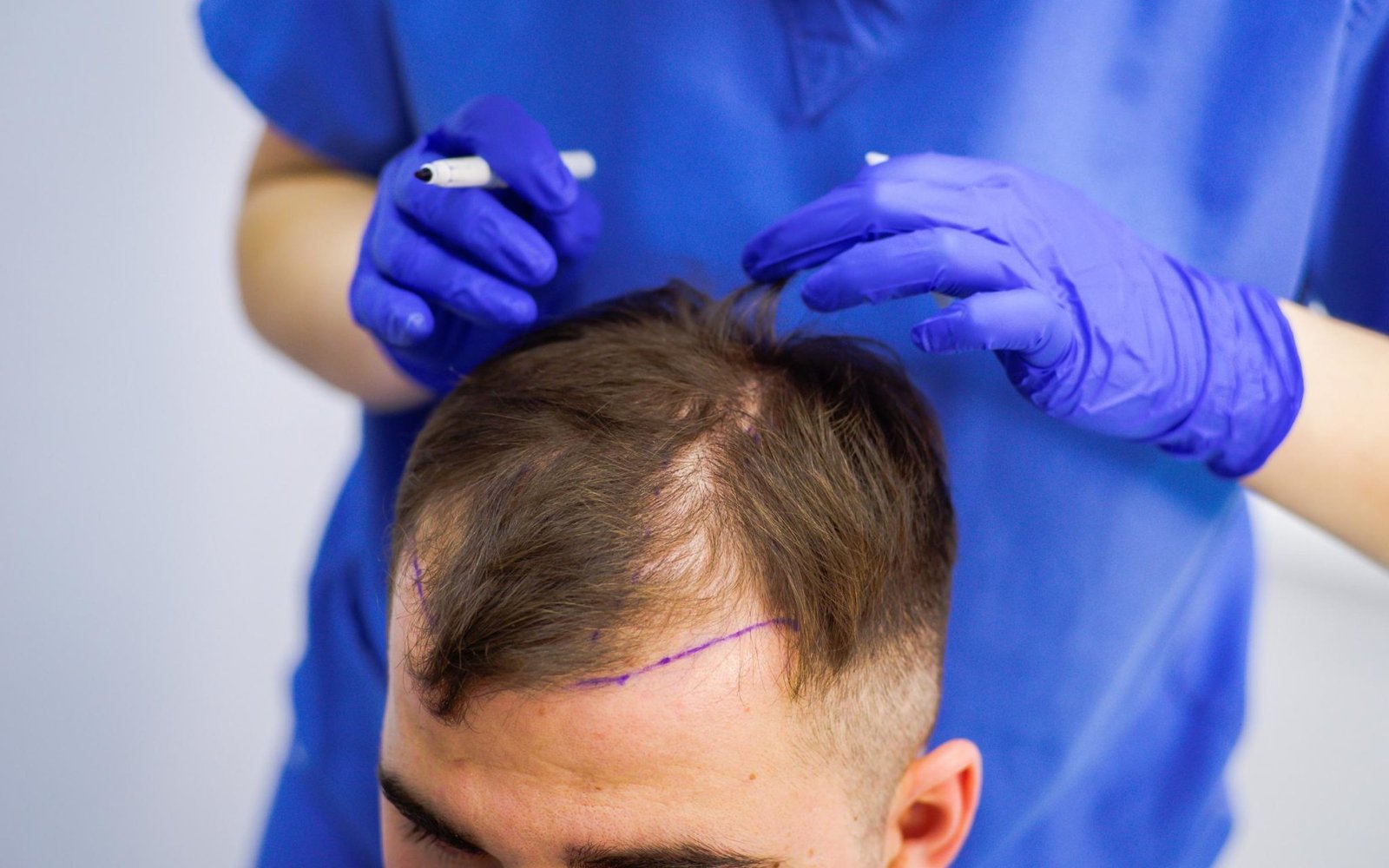A hair transplant can be a life-changing procedure for individuals dealing with hair loss. However, to ensure the best results and a smooth recovery, it is essential to take specific precautions before and after the surgery. This blog outlines the key steps to follow, emphasizing the importance of preparation and post-operative care.
Before the Hair Transplant
1. Consultation with a Specialist
Before anything else, schedule a consultation with a qualified hair transplant specialist. During this meeting, discuss your hair loss history, medical conditions, and any medications you are taking. This information will help the doctor determine the best approach for your specific needs.
2. Understand the Procedure
Educate yourself about the hair transplant procedure. There are different techniques, such as Follicular Unit Transplantation (FUT) and Follicular Unit Extraction (FUE). Understanding these methods will help you make informed decisions about your treatment.
3. Follow Pre-Operative Instructions
Your doctor will provide you with specific pre-operative instructions. It’s crucial to follow these carefully. Common recommendations include avoiding blood thinners, such as aspirin and certain supplements, at least a week before the procedure. This will minimize the risk of excessive bleeding during the surgery.
4. Avoid Alcohol and Smoking
Both alcohol and smoking can impede healing. It is best to avoid these substances for at least a week before your hair transplant. Smoking reduces blood flow and can affect the survival of the transplanted hair follicles. Similarly, alcohol can dehydrate your body and increase bleeding risks.
5. Maintain a Healthy Diet
Eating a balanced diet is essential for optimal health. Focus on foods rich in vitamins and minerals, especially vitamins A, C, D, E, and zinc. These nutrients promote healing and can improve the success of the hair transplant. Staying hydrated is also vital. Drink plenty of water in the days leading up to your surgery.
On the Day of the Procedure
6. Arrive Early
On the day of your hair transplant, arrive at the clinic early. This will give you time to relax and complete any necessary paperwork. Being calm will help you start the procedure with a clear mind.
7. Wear Comfortable Clothing
Dress in comfortable, loose-fitting clothes. This is particularly important if the procedure will take several hours. You want to be comfortable, especially since you may need to remain in the same position for a while.
After the Hair Transplant
Once the hair transplant is completed, the real work begins. Proper aftercare is crucial for ensuring the best possible results.
8. Follow Post-Operative Instructions
Your doctor will provide specific post-operative instructions. These might include how to care for the donor and recipient areas, medications to take, and when to schedule follow-up appointments. Following these guidelines is essential for healing.
9. Avoid Touching the Transplanted Area
Resist the urge to touch or scratch the transplanted area. Touching can introduce bacteria and lead to infection. Keep your hands away from the area, especially during the first few days after the procedure.
10. Manage Pain and Discomfort
It’s normal to experience some pain and discomfort after the procedure. Your doctor may prescribe pain medication or recommend over-the-counter options. Follow their advice to ensure you remain comfortable during the healing process.
11. Sleep with Your Head Elevated
To minimize swelling, sleep with your head elevated for the first few nights after your transplant. You can use extra pillows or a reclining chair. Keeping your head above your heart will help reduce the risk of swelling in the transplant area.
12. Avoid Strenuous Activities
Avoid strenuous physical activities for at least a week after the surgery. This includes heavy lifting, vigorous exercise, and any activities that could put stress on the transplanted hair follicles. Resuming intense workouts too soon can compromise the results of your hair transplant.
13. Stay Out of the Sun
Protect your scalp from direct sunlight for at least two weeks following the procedure. UV rays can harm the healing skin and affect the growth of your new hair. Wear a hat or use a sunscreen recommended by your doctor if you need to be outside.
14. Be Patient with the Results
The growth after a hair transplant takes time. Initially, you may experience shedding of the transplanted hair, which is entirely normal. New hair growth typically starts around three to four months post-surgery. Be patient and allow time for the full results to become visible.
15. Schedule Follow-Up Appointments
Regular follow-up appointments with your hair transplant specialist are crucial for monitoring progress. Your doctor will assess the healing process and provide guidance on any additional treatments you may need. This ongoing care ensures that any concerns are addressed promptly.
Conclusion
Taking the right precautions before and after a hair transplant is vital for achieving the best results. From understanding the procedure to following post-operative care instructions, each step plays a significant role in your recovery and the success of the transplant. If you’re considering a hair transplant, consult a qualified specialist who can guide you through the process.
For those in need of professional care, the Royal Cosmetic Surgery Clinic PK offers expert hair transplant services. Their team is dedicated to helping you achieve your hair restoration goals safely and effectively.




